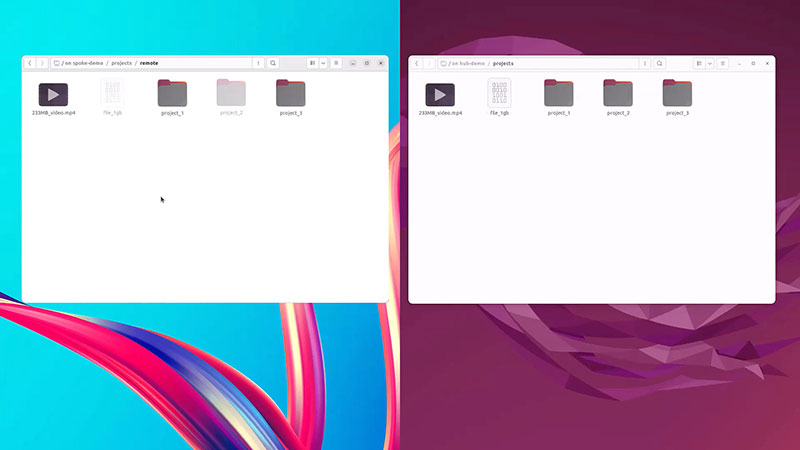Through new Private Availability of Qumulo’s Cloud Native file system, the Qumulo Global Namespace can now be used to manage very large quantities of unstructured data on AWS.

Through the new Private Availability of the Qumulo Cloud Native file system, organisations can now use Qumulo’s Enterprise multi-protocol file system to manage very large quantities of unstructured data on Amazon Web Services (AWS). Users can store and curate their data, taking advantage of the scale, durability and economics of their own Amazon S3 buckets from AWS at the same time.
Qumulo Cloud Native file system uses Amazon S3 for its cloud file storage, which allows them to deliver their data services with the performance, security and protocol compatibility of the AWS file system. Qumulo’s own file system layer is disaggregated from object storage, but both work together to deliver high throughput and transactional performance.
This disaggregation makes it possible to complete as much as 99% of all transactions in the file system layer, reducing and saving costs. Customers can deploy a Qumulo file system on AWS within a few minutes, and scale from 4GBps to hundreds of Gbps, meanwhile using AWS’s elastic cloud compute (Amazon EC2) and storage (Amazon S3) infrastructure.
At NAB 2024 in April, Qumulo held a demonstration of Qumulo’s Global Namespace (GNS), a feature that allows users and applications to access remote application data as if it were local. Bardel Entertainment plans to use this capability to centralise data and make it accessible to artists in remote locations while maintaining performance.
“A project that would have been region-bound is now global and can go to any resource at any time, anywhere,” said Arash Roudafshan, VP of Technology at Bardel. “By being more agile, we can pass this capability on to clients, and they can in turn think more creatively and run productions with more agility,” he said. Qumulo’s Cloud Native file system on AWS is available only through private availability.

Cloud Native
Combined with Qumulo’s Cloud Native file system, creative teams can use the company’s Global Namespace (GNS) approach to collaboration from geographically dispersed locations, from any device connected to AWS infrastructure. The teams and individuals from a global organisation can work together directly with consistent file system performance, at a manageable cost.
Running multiple file systems in multiple data centres and in the cloud be complex to manage and leave fewer options for teams. For instance, data duplication across sites may result in rising costs and version conflicts, and overwhelm WAN links. Storage tiering at petabyte scale can also cause availability and performance issues and involve 3rd party data management tools and licensing costs. Gateway servers sometimes lead to data-access bottlenecks as well.
In contrast, Qumulo Global Namespace, with the company’s Scale Anywhere platform, is primary storage that gives direct access to unstructured data from any location, which makes data management simpler and also supports hybrid workflows. Global Namespace is based on a proprietary AI-driven algorithm that Qumulo has been refining over the last 10 years. It pre-fetches the requested data from any Qumulo Instance, before it is actually needed. Meanwhile, for data consistency and low-latency access, a network-optimised cross-instance communication protocol is used to minimize WAN traffic with fine-grained read / write locking and intelligent cache management between Qumulo instances. qumulo.com



















